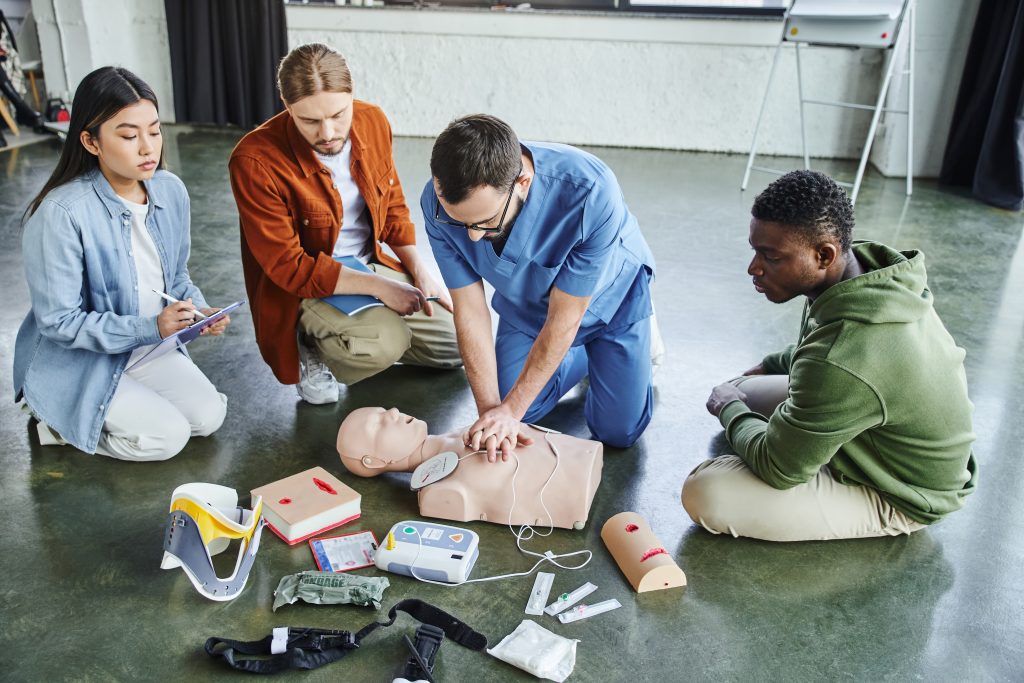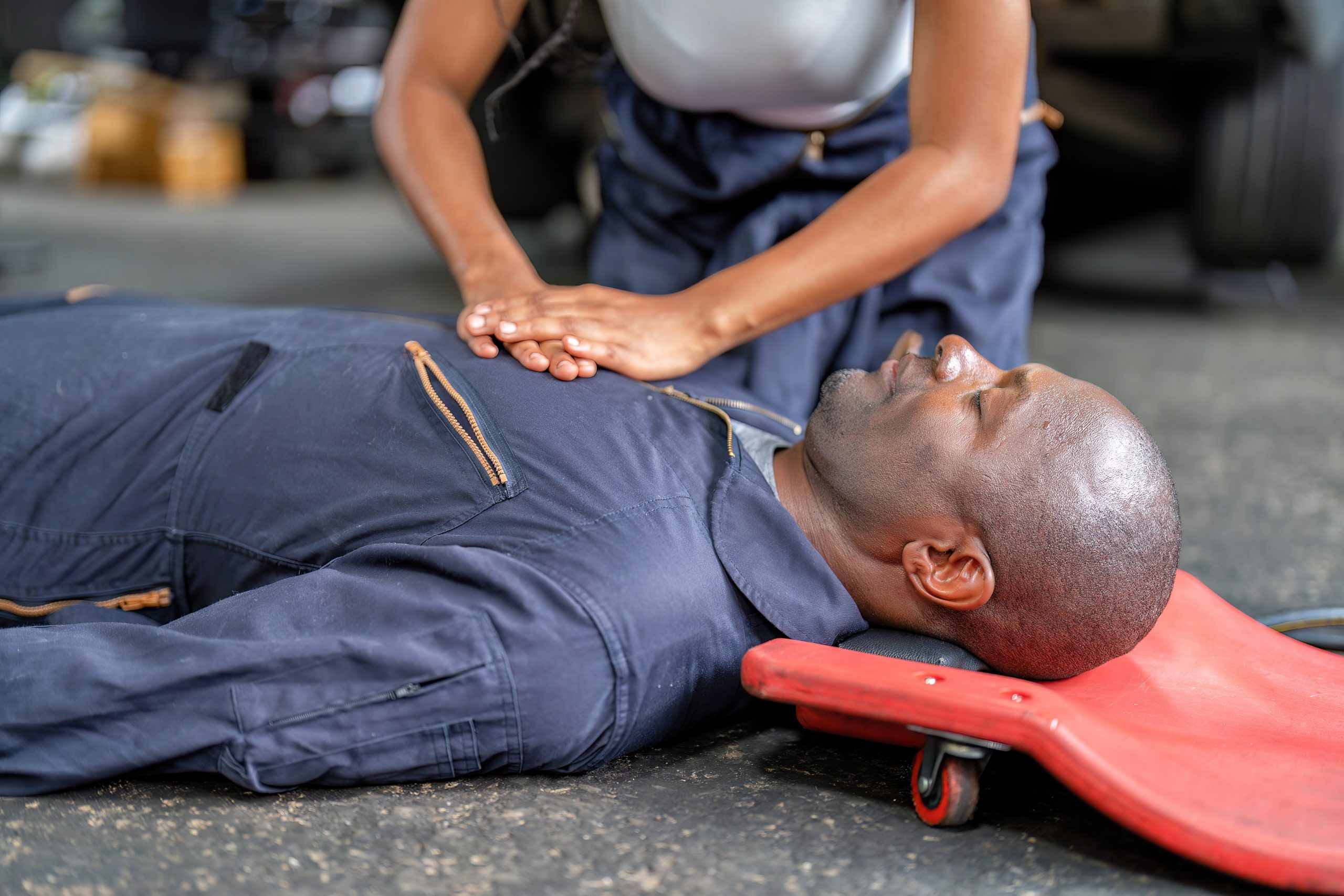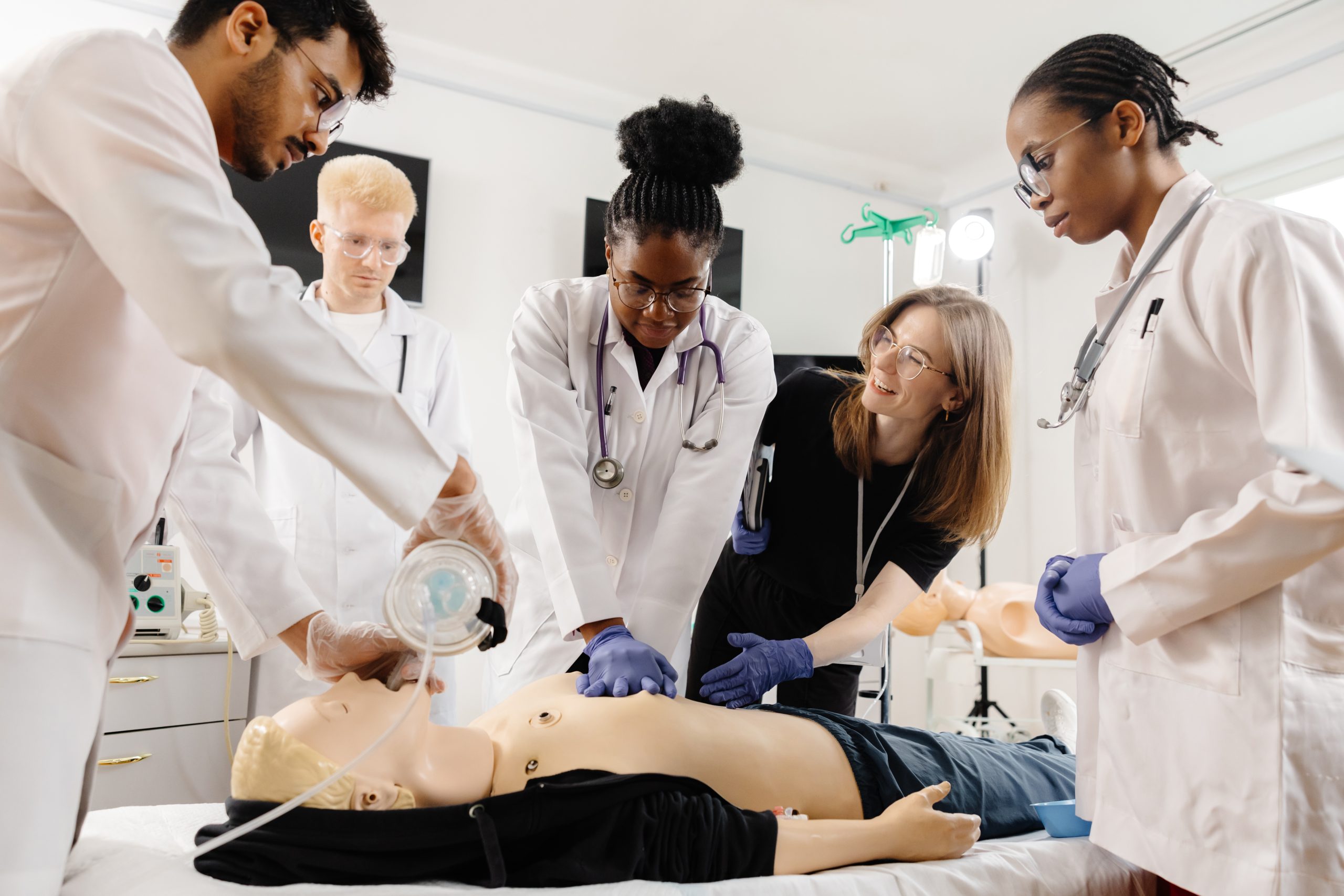
When it comes to workplace safety, CPR certification is a critical requirement for many jobs in Houston. This city, known for its vibrant economy and diverse industries, places a strong emphasis on the health and safety of its workforce. Whether you’re looking to work in healthcare, education, or even as a lifeguard, understanding CPR certification requirements is essential. This article will guide you through what employers in Houston expect regarding CPR training and certification, providing you with the necessary knowledge to advance your career while ensuring a safe work environment.
Cardiopulmonary resuscitation (CPR) is a life-saving technique used in emergencies when someone’s heartbeat or breathing has stopped. It is a crucial skill that can be the difference between life and death in critical situations. CPR certification ensures you have the skills and knowledge to perform CPR correctly and confidently, equipping you to handle emergencies effectively.
CPR can save lives. In the event of cardiac arrest, every second counts, and knowing how to properly administer CPR can be the difference between life and death. This life-or-death significance is why CPR certification is often non-negotiable for many employers, especially those in industries where employees may need to respond to medical emergencies. Employers recognize the value of having CPR-certified employees, particularly in roles where they may need to respond to medical emergencies. Beyond saving lives, CPR certification also instills confidence in employees, reassuring them that they are equipped to handle unexpected health crises.

In Houston, CPR certification requirements vary depending on the industry and specific job role. As a city with a diverse workforce, different sectors have unique demands for CPR skills. Here’s a breakdown of what you might need depending on your career path.
For healthcare workers, CPR certification is often mandatory. This includes doctors, nurses, paramedics, and other medical staff. These professionals are on the front lines of health care, and their ability to perform CPR can be crucial in patient care. Typically, employers require certification from recognized organizations such as the American Heart Association (AHA) or the American Red Cross. These certifications are not only mandatory but also serve as a testament to the rigorous training healthcare professionals undergo to ensure patient safety.
In educational settings, teachers and school staff may also be required to have CPR certification. Schools prioritize the safety of students, and having trained staff on site is part of that commitment. Educators are often the first responders in school emergencies, and their ability to perform CPR can be critical in safeguarding student health. Certification requirements can vary by school district, so it’s important to check the specific guidelines in your area. Schools may also offer additional training to ensure staff are well-prepared for any emergency.
For lifeguards and fitness instructors, CPR certification is a must. These professionals are often the first responders in emergencies, whether at a pool, gym, or fitness center. They are tasked with ensuring the safety of patrons, and CPR skills are vital in their role. Employers typically require certifications that cover both CPR and Automated External Defibrillator (AED) use. This comprehensive training ensures that they can handle a wide range of emergency scenarios, providing peace of mind to both employers and clients.
Many other roles, such as childcare providers, security personnel, and hospitality staff, may also require CPR certification. These jobs often involve interaction with the public, where the ability to respond to an emergency can be crucial. In these roles, having the ability to respond to an emergency can be crucial, and employers value candidates who are prepared. CPR certification in these sectors not only enhances safety but also adds a layer of professionalism and preparedness to the workforce.
If you need CPR certification, there are several steps you can take to get certified in Houston. The process involves selecting the right course, understanding the course content, completing the training, and passing the certification exam.
Start by selecting a CPR course that meets your needs and the requirements of your employer. Look for courses offered by reputable organizations like the AHA or American Red Cross. These courses often include both in-person training and online components, providing flexibility and comprehensive learning. Consider your schedule and learning preferences when choosing between in-person and online formats to ensure the best learning experience.
A typical CPR course will cover essential skills such as chest compressions, rescue breaths, and using an AED. You’ll also learn how to assess a victim’s condition and respond appropriately. Understanding these basics is crucial for effective CPR. The course may also include scenarios and simulations to provide practical experience in a controlled environment, enhancing your ability to perform under pressure.
Once you’ve chosen a course, you’ll need to complete the training. This usually involves attending a workshop or class where you’ll practice CPR techniques on mannequins and receive feedback from instructors. Some courses also offer online modules that you can complete at your own pace. This hands-on experience is invaluable, as it allows you to refine your technique and gain confidence in your skills.
After completing the training, you’ll be required to pass a certification exam. This exam typically tests your practical skills and theoretical knowledge of CPR. Upon passing, you’ll receive a certification card that is valid for a specified period, usually two years. The certification card is a testament to your competence and readiness to handle real-life emergencies, making it a valuable asset in your professional toolkit.

CPR certification isn’t a one-time event. To ensure you remain prepared to handle emergencies, it’s important to keep your certification up to date. Regular renewal and continuing education are key components of maintaining your CPR skills and knowledge.
Most CPR certifications are valid for two years. Before your certification expires, you’ll need to take a renewal course to maintain your status. These courses often review the latest CPR guidelines and allow you to refresh your skills. Staying current with your certification ensures that you are always ready to respond effectively to emergencies, maintaining a high standard of safety in your workplace.
Some employers may require additional training or continuing education in related areas, such as first aid or advanced life support. This ongoing learning ensures that you remain informed about the latest techniques and guidelines, enhancing your ability to respond effectively to emergencies. Staying informed about the latest techniques and guidelines is part of being a responsible and effective responder. Engaging in continuing education also demonstrates your commitment to professional development and excellence in your field.
Employers in Houston value CPR-certified employees for their ability to contribute to a safe work environment. Having CPR-certified staff not only ensures compliance with safety regulations but also enhances the overall safety culture within the organization. When applying for jobs, it’s beneficial to highlight your CPR certification on your resume and during interviews. Here’s what employers typically expect:
CPR certification is a vital skill that can make you a more attractive candidate to employers in Houston. By understanding the certification requirements and ensuring you maintain your certification, you can play a key role in workplace safety. Whether you’re in healthcare, education, or another field, being prepared to respond in an emergency is invaluable. Investing in your CPR training today equips you with the skills needed to save lives and meet employer expectations. By doing so, you not only enhance your career prospects but also contribute to a safer community and workplace.
Ready to enhance your skills and become CPR certified? Don’t wait until an emergency happens—take the proactive step to ensure you are prepared. Contact CPR Classes Near Me today to find the best CPR and First Aid classes in your area. Equip yourself with the knowledge and skills to save lives and meet employer expectations. Sign up now and make a difference in your community!
Our primary goal is to ensure that you receive a top-quality CPR/First Aid certification. With our in-person training in Austin, you can learn CPR and BLS in just one class. Your presence is all that’s needed to continue with your lesson! During your session, you will complete all the live-training components necessary to ensure you receive your AHA Healthcare Provider certification card.
Our CPR Classes in Austin are discounted to $59.95 (saving you $20), and our CPR + First Aid Class is offered at $79.95 (also saving you $20). When looking for CPR Classes, ensure to check for the American Heart Association seal. Other sites might seem cheaper but frequently lack the official training credentials demanded by employers.
Upon successful completion of the course, you will obtain a CPR certification that is valid for two years. The AHA CPR certification is recognized with the highest acceptance rate among employers nationwide.
Indeed! Enroll in any CPR Certification Austin BLS course to extend your certification for an additional two years. The in-person BLS course and the Renewal Class are identical.
Anyone capable of completing the course independently should consider pursuing CPR training and CPR Certification. There is no minimum age restriction for obtaining a CPR certification in Austin through the American Heart Association (AHA)..
CPR training needs to be carried out in person to guarantee its effectiveness. Our experienced instructors offer an engaging and dynamic learning experience. Typically, employers do not recognize CPR certifications that are obtained solely through online courses.
All authorized American Heart Association training centers are obligated to display the entire video. After a three-hour session with CPR Classes Near Me Austin, your BLS CPR eCard will be promptly issued by the instructor on the same day!